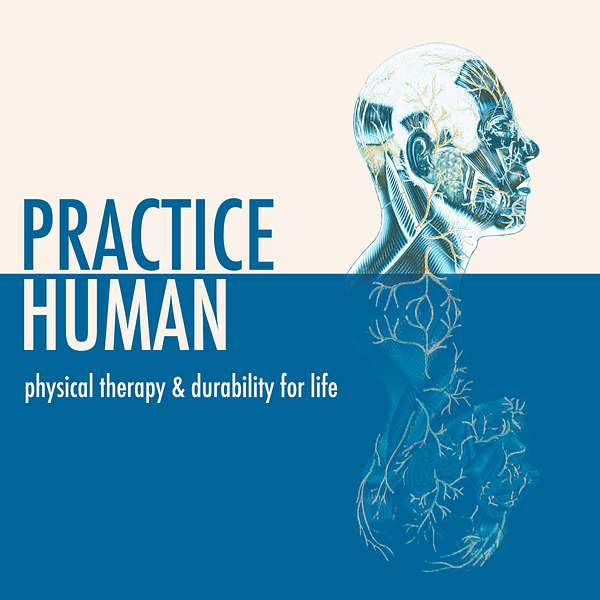
Practice Human
Dr. of Physical Therapy, Caitlin Casella speaks with professionals in healthcare, therapeutic movement and exercise, strength and conditioning, athletic training, and bodywork. Interviews focus on the overlapping layers of health and wellness with belief structures, social engagement, economic and environmental factors, and sustaining robust activity later in life. Questions that drive Caitlin’s work and curation of the Practice Human Podcast examine systemic factors which create barriers to care, and how health and wellness can only be partially left to the individual. She asks, "how does our wellness as a society depend on our collective care?"
Practice Human
Ep 046: Greg Lehman | Building a Healthy Movement Ecosystem
Use Left/Right to seek, Home/End to jump to start or end. Hold shift to jump forward or backward.
Greg Lehman will be presenting a weekend course on SATURDAY, July 13 - SUNDAY July 14, 2024 at Practice Human in NYC. CLICK HERE TO SIGN UP NOW.
Greg Lehman is a physiotherapist and strength and conditioning specialist, specializing in musculoskeletal disorders within a biopsychosocial model.
He teaches two internationally recognized continuing education courses: Reconciling Biomechanics with Pain Science and Running Resiliency, which have been conducted over 100 times in 40+ countries and 5 continents.
Prior to clinical work, Greg conducted biomechanics research at the University of Waterloo, publishing 20+ papers. As an assistant professor, he taught Spine Biomechanics and Instrumentation and led numerous research experiments.
Greg Lehman’s expertise spans biomechanics and neuroscience, emphasizing simple yet effective techniques for managing musculoskeletal disorders. Greg enjoys actively engaging in knowledge sharing on social media.
Find out more about Greg’s work at greglehman.ca. Check out his youtube channel www.youtube.com/@glehman. Follow him on Instagram @greglehman. Additionally you can reach out via email at greglehmanphysio@gmail.com.
What’s covered in this episode?
- What is a “Movement Optimist”?
- When does exercise prescription need to be specific and when can it be generalized across a broad array of symptoms or diagnoses?
- How does prescribing exercise based on a patient’s interests affect treatment outcomes?
- What is included in the ecosystem of factors that influence pain, function, and rehab prognosis?
- What are some strategies for prescribing cardio exercise in a rehab setting, and how does metabolic health change pain sensitivity?
- Pros and cons of cross training.
- When and how a clinician should integrate strength and conditioning into a treatment plan.
- What is non-specific low back pain? Why is this diagnosis useful and how does it relate to the biopsychosocial model?